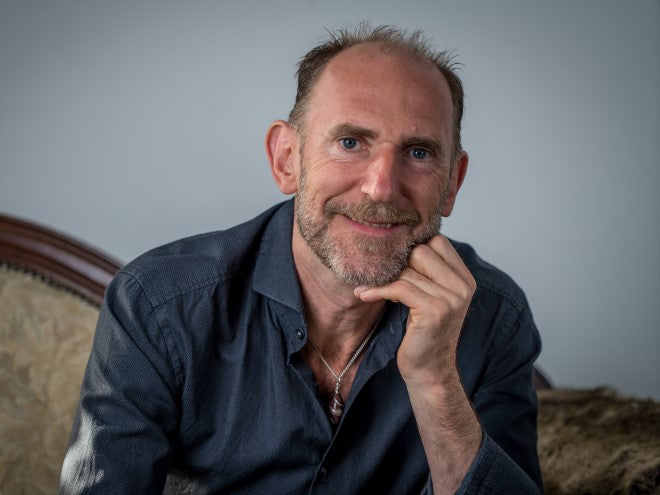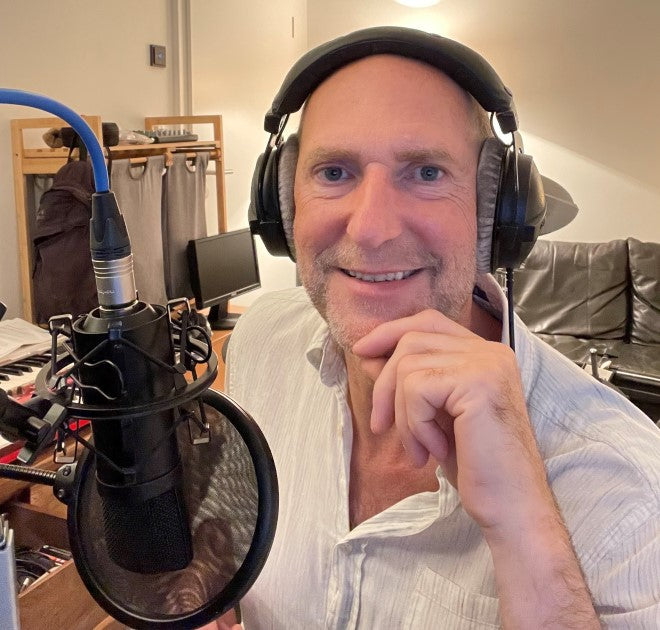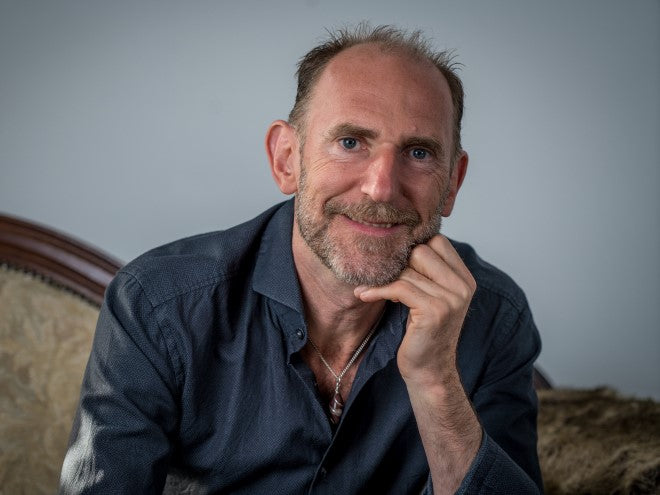
“Alcohol only becomes a problem when you drink it with a bad conscience!” Interview with the qualified teacher and bestselling author Andreas Winter
“Alcohol only becomes a problem when you drink it with a bad conscience!” Interview with the qualified teacher and bestselling author Andreas Winter
"We should stop describing and viewing alcoholism as an illness . I think it is much more effective to respect a person's behavior and to assume that there is an understandable reason for every behavior. Anyone who has reflected on and recognized the real reason for their drinking will be free to make their own decisions again." Andreas Winter, head of one of Germany's largest coaching institutes and author of the guidebook and audio book " The thing about alcohol ," wants to use his proven depth-psychological approach to help his readers conquer the "genie in the bottle" and become confident, recreational drinkers again.
Your new book takes up a controversial topic that you already dealt with a few years ago as part of your “Psychocoach” series. What motivated you to tackle the “alcohol issue” again?
Andreas Winter: The topic is only really controversial because our society has a mindset that reflects total helplessness when it comes to alcohol addiction, and this is also vehemently defended. Hardly anyone seems to take the current state of research into account in addiction therapy. Years ago, people like Professor Dr. Körkel described how alcohol consumption can be brought out of the danger zone. But the topic of alcohol, its consequences and the unfortunately often ineffective treatment of them, has not lost any of its relevance. On the contrary, the focus of the topic has simply shifted. Although classic alcoholism with morning jitters and drinking from mirrors has declined somewhat in terms of numbers, fear of alcohol is spreading among normal consumers who have previously had no health problems. People who drink quantities that were considered completely harmless years ago, such as two glasses of wine with a meal or two bottles of beer in the evening, now sometimes consider themselves to be at risk of addiction.
This is because these people usually focus on the amount they drink and how often they drink, but not on the reason for drinking. The real problem is that if you drink alcohol with a bad conscience, with underlying feelings of guilt or shame, then it is metabolized completely differently due to the stress hormones and this is what makes it dangerous.
Another important point, which is why I am taking up the subject again, is that clinical treatment of alcoholics does not appear to be making any significant progress. It seems to be becoming more and more entrenched in people's consciousness that the only cure for addiction is total abstinence. This means that people fail to understand what addiction actually is, how it comes about and how it can be eliminated. With my book, I want to help people who drink alcohol to avert the danger in order to take the health and social pressure off their families.
According to official estimates, well over ten million people in Germany have serious alcohol problems, including around three million alcoholics, seven million drinkers in need of advice or treatment, and around 20,000 alcohol-related deaths each year. Yet you claim that alcoholism is not an "addiction" in the true sense of the word. What do you mean by that?
Andreas Winter: Of course, you can become ill or even die as a result of excessive alcohol consumption. But that doesn't necessarily require an addiction, just a chronic overdose. An overdose that leads to death can even be caused by water; the medical term for this is hyponatremia. The mechanism of action of an addiction means that you have little control over your consumption. Abrupt abstinence also manifests itself in physical withdrawal symptoms. An addiction definitely cannot be eliminated with a conversation - but conditioning, i.e. an automatic physical reaction to learned stimuli, can. Decades of experience with clients show that the behavioral pattern of chronic alcohol abuse can be changed by analyzing and reflecting on the causes of drinking. And that is exactly the area in which I have been at home as a humanities scholar for over three decades: the automatic programs anchored in the subconscious. I can understand that people who are not familiar with humanities topics often think that conditioning is an addiction. Especially in light of the fact that it is also colloquially referred to as: Internet addiction, nicotine addiction, sex addiction, gambling addiction, food addiction or alcohol addiction - these are usually not physical addictions, but rather conditioning that can be kept at bay for a while with disciplined abstinence and tranquilizers, but cannot be broken. However, if a stimulus-response connection is broken, the person concerned can then drink, gamble or smoke like everyone else - without relapsing. That is why I think it is not justifiable to speak of an addiction in such contexts, because the necessary support measures are completely different to those for a physical addiction, such as those we know from heroin or opium.
In the foreword to your book, food chemist and science journalist Udo Pollmer writes that anyone who fears slipping into addiction needs help, not admonitions. Who are you targeting with your approach, and how does it differ from other therapy options?
Andreas Winter: My approach is primarily aimed at doctors, therapists and also at concerned alcohol consumers, i.e. those who are looking for ways to demystify the "genie in the bottle". Basically, however, everyone who lives in a society in which alcohol is a cultural drug should know how to handle it safely and correctly interpret the real warning signs. My approach to chronic alcohol overdose or the fear of it is as follows: First, the person concerned reflects on why he or she drinks. This reason can then be reassessed on an emotional level. This means that from then on, with a little information about the actual effects of alcohol, he or she is free to make his or her own decisions. All other therapy options that I know of often fail because the person concerned is initially declared to be ill - which he or she is not, because an infected body can either defend itself against an illness and recover from it, provided it does not lead to death. The next step is usually to demand strict abstinence from the person affected, but this is no more helpful than trying to get rid of a computer virus by turning off the computer. Avoiding confrontation, contamination or continuation of consumption does not lead to healing, but only stagnation.
Simply removing alcohol from the body can prevent alcohol-related organ damage, but it does not free a person from the cause of excessive drinking. How can you get to the bottom of this and get back to enjoying your drink?
Andreas Winter: As already mentioned, we should first stop calling alcoholism an illness, because the idea of an illness implies that it comes “just like that” and can be cured with medical treatment. I think it is much more effective to respect a person’s behavior and to assume that there is an understandable reason for every behavior. If the preconception of “ill” or “incomprehensible” is removed, the way is paved for the analysis of the causes. This is usually not that difficult if you know what effect alcohol is actually intended to have: alcohol suppresses the perception of other people’s expectations. A person affected usually drinks to feel better. This means that we first have to find out why he is not feeling well, whose expectations he feels threatened by. When analyzing the causes, we come straight to the usual suspects: the suppliers of the value system, usually the person’s own parents. The role models such as older siblings, kindergarten teachers, teachers, police officers and other perceived authority figures further reinforce the guilty conscience with their expectations. This results in a feeling of inadequacy, being overwhelmed and rejected. This in turn contradicts the emotional needs of people. One possible way out is to numb the ability to perceive expectations. However, this does not solve the problem, but only postpones it, and the guilty conscience for drinking is the same as the feeling of shame, so the vicious circle is inevitable. The solution would not be abstinence, but a feeling of maturity and independence from foreign, acquired values. When a person is then aware of his sovereignty, he usually no longer drinks to feel better, but at most only when he is feeling good. This breaks the circle and consumption can be easily controlled, i.e. you stop drinking as soon as the effects start to bother you.
The consumption of alcohol is deeply rooted in our cultural identity and has a strong symbolic component. What different "types" of drinkers are there and what do they have in common?
Andreas Winter: In medicine, there are different types of drinkers, from the alpha type to the epsilon type, from the occasional drinker to the quarterly drinker to the mirror drinker who only wants to avoid physical problems such as muscle cramps with alcohol. They all have one thing in common: they are pathologized. People act as if there was something wrong with these people. That would be like telling someone that they are ill just because they eat several times a day, because appetite is usually not due to a lack of nutrients but to an emotional need or social reason. There are many very stubborn beliefs in our society that have not been thought about very often. But the people who are affected by the effects of these beliefs certainly have a great interest in not being pathologized. But what do you do with them? You tell them, "Go to the doctor, you're ill." To answer the question briefly: the only thing the drinker types really have in common is that they drink.
According to current media reports, alcohol is no longer so trendy among young people, and supposedly "sober [...] is the new cool" (SZ from January 20, 2022). Can you also observe this development in your practice? And what do young people do instead to cope with their experiences of powerlessness?
Andreas Winter: Firstly, I am sure that you can get any desired result for any survey and statistic if you pay close attention to who you ask, when and how. There have been times in history when it was completely absurd for children and young people to emphasise their sobriety because alcohol played no role anyway. So when the Süddeutsche Zeitung announces that sobriety is the new cool and then in the same breath advertises milk, coffee and mineral water, it is something to wink at. However, you also have to know that the cultural values of the generations alternate like waves. The contempt for the parent drug alcohol is expressed with other consumer goods. Whether with taurine soda or ecstasy pills, whether with a vegan diet and quinoa smoothies - the main thing is that you are different. I would say that "anti" is the new and old cool - only that it is not so cool at all, but a defiance against parental values. In plain language: Whether you cloud yourself with alcohol and thereby escape the pressure or react to expectations and foreign values with defiance, resistance and defense - it makes no difference and neither is productive. In my book I describe how you can deal with limits and value clashes without conflict, using the possibilities and maturity of an adult.
To put it simply, one could say that alcohol dependence is not so much influenced by the amount consumed, but rather by the feeling associated with it. What consequences do you think this should have for addiction treatment and drug policy?
Andreas Winter: The consequences for drug policy are quite clear: drugs of any kind should no longer be a temptation for those who like to experiment, nor a lifeline for those who are overwhelmed and escapist. If we really want to help people to get out of chronic drug overdose, we need to analyze the causes and automatically anchor the problem-solving behavior in those affected. The trigger for drinking must be reflected upon and given an emotional "update." With the maturity of an adult, certain reactions simply no longer form part of the behavioral repertoire. People are then free to make decisions again. However, ending the long-term patient relationship does have one disadvantage: those who have broken the old patterns no longer relapse and are therefore of course no longer a "Class A customer" for the alcohol industry who buys alcohol in excess, but only when they want to have a drink.
Finally, I would like to point out that my book is not a self-help guide that tells you "how to do it", but an educational book that describes how it can work with depth psychological analysis and an emotional reinterpretation of the triggers. Very reflective people may be able to solve their problems with the information provided, but it is a demanding task. It is much easier with the audio book version, because the listener will also find two coaching tracks recorded by me that help them with self-reflection. It is important to me to raise awareness that someone who has reflected on and recognized their true reason for drinking can become a connoisseur again.
Book tip:
Andreas Winter: The thing about alcohol. Enjoyment without addiction is possible: Why we drink and how we can change our habits . Mankau Verlag, 1st edition September 2022, paperback, 13.5 x 21.5 cm, 190 pages, 18.00 euros (D) / 18.50 euros (A), ISBN 978-3-86374-676-6
Audiobook tip:
Andreas Winter: The thing with alcohol. Audiobook with audio coaching. Mankau Verlag, 1st edition September 2022, 1 MP3 CD in jewel case, total running time approx. 323 minutes, 8-page booklet, 18.00 euros RRP (D/A), ISBN 978-3-86374-679-7
Link recommendations:
More information about the book “The thing about alcohol”
To the reading sample in PDF format
More information about the audio book with audio coaching “The thing about alcohol”
More about author Andreas Winter
Our social networks − for questions, criticism, suggestions











